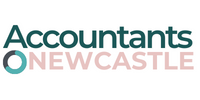Streamlining Your Business Tax Preparation Process
Business tax preparation is an essential aspect of running a successful business. In this article, we will explore the impact of efficient tax preparation on business operations, the benefits of timely and accurate tax filing, and the financial consequences of inefficient tax preparation. We will also discuss the documents required for business tax preparation, including essential financial documents and record-keeping best practices. We will provide tips for organising financial records for seamless tax filing and strategies for maximising common tax deductions for businesses. We will address frequently asked questions about business tax preparation, including compliance with changing tax laws, avoiding common mistakes, and using technology to simplify the process. Whether you’re a seasoned business owner or just starting, this article will provide valuable insights to help you streamline your business tax preparation process.
Why is Efficient Business Tax Preparation Essential?
Efficient business tax preparation ensures compliance with regulatory requirements, optimisesoptimising financial performance, and facilitates well-considered choices.
As businesses navigate a complex web of tax regulations and changing legislative landscapes, efficient tax preparation becomes instrumental in avoiding penalties and scrutiny from authorities.
By accurately managing tax obligations, organisations can allocate resources more effectively towards growth and innovation, ultimately enhancing their financial health. It also plays a pivotal role in strategic planning, providing valuable insights for leveraging tax incentives and minimising liabilities.
What documents are required for business tax preparation?
Business tax preparation necessitates collecting and organising essential financial documents to ensure accurate reporting and compliance with tax regulations.
Essential Financial Documents
The essential financial documents required for business tax preparation comprise a range of records such as receipts, invoices, bank statements, and financial reports.
These documents are crucial in ensuring compliance with tax laws and regulations.
Receipts are crucial for documenting business expenses and deductible items. At the same time, invoices and bank statements provide evidence of income and financial transactions.
Furthermore, financial reports such as balance sheets and income statements offer a comprehensive overview of the company’s financial performance and position, aiding in accurate reporting and analysis during tax preparation.
Record-Keeping Best Practices
Effective record-keeping best practices for tax preparation include:
- The secure digital storage of financial data.
- Implementation of data security measures.
- Adherence to retention policies.
By digitising records, individuals and businesses can enhance accessibility and reduce physical storage costs. Utilising cloud storage or secure servers protects sensitive financial information from unauthorised. Establishing robust data security procedures, such as regular backup and restricted access, is vital to safeguard against potential breaches or data loss. Adherence to retention policies, such as those outlined by relevant tax authorities, helps ensure compliance and reduces the risk of penalties.
Maintaining organised and retrievable records for the prescribed period and properly disposing of outdated information by regulatory guidelines is imperative.
Importance of Document Organisation for Audits
Document organisation facilitates audits by ensuring regulatory compliance, providing audit trails, and promoting financial transparency in tax preparation.
In terms of compliance, having well-orgawell-organiseds can streamline the process of meeting regulatory requirements. This includes tax codes and laws, demonstrating a commitment to following the rules. It also minimises penalties or fines due to non-compliance.
A thorough audit trail is essential for tracking the flow of financial transactions. It also provides evidence of all actions taken. By maintaining accurate records, businesses can build a strong foundation for effective and reliable financial reporting. By implementing best practices for document organisation and integrating these tools, businesses can ensure a smooth and efficient tax preparation process.
How do you organise financial records for seamless tax filing?
Implementing a Systematic Record-Keeping Process
Implementing a systematic record-keeping process involves leveraging digital tools, automation, and data validation mechanisms to ensure the accuracy and accessibility of financial records for tax preparation.
By integrating accounting software solutions, such as QuickBooks or Xero, businesses can streamline the recording and tracking of financial transactions. These digital tools offer features like automatic categorisation and minimising, saving time compared to manual data entry.
Implementing automated data backup and archiving processes ensures the security and integrity of financial data, safeguarding against loss or corruption.
Digital Tools for Organizing Financial Data
Leveraging digital tools for organising data in tax preparation involves utilising a tack, cloud storage solutions, and efficient data categorisation to streamline the process.
These digital tools are crucial in modern tax preparation, allowing professionals to manage large volumes of financial data efficiently.
With the integration of tech stacks, individuals can utilise applications and platforms tailored to their specific financial needs, such as accounting software, data analytics tools, and tax preparation applications.
Cloud storage solutions provide a secure and accessible repository for financial records, enabling seamless collaboration and real-time data updates across different devices and locations.
Efficient data categorisation, such as automated tagging and metadata organisation, facilitates quick retrieval and analysis of financial information.
By leveraging these digital tools, tax preparers can enhance accuracy, optimise efficiency, and ensure compliance with regulatory requirements, ultimately delivering greater value to clients.
Tips for Efficient Retrieval During Tax Filing
Efficient retrieval during tax filing can be achieved by implementing search functionalities, data indexing, and optimising speed for seamless access to financial records.
When setting up search functionalities, it is essential to consider using structured data to index the information. This helps in organising and categorising documents, making them easily retrievable.
OptimisinOptimisingl speed involves leveraging database management tools and performing regular maintenance to enhance efficiency.
What are common tax deductions for businesses, and how do you maximise them?
Identifying common tax deductions for businesses and implementing strategies to maximise their legal boundaries is pivotal for optimisinoptimisingilities and enhancing financial performance.
Overview of Common Business Tax Deductions
An overview of common business tax deductions encompasses eligible expenses, strategies for deduction maximisation, and the role of tax planning in optimising within legal boundaries.
Businesses can claim several tax-deductible expenses, including employee salaries, rent, utilities, and business supplies. Deductions can also be optimised, such as SEP-IRAs and 401(k)s, and by structuring business transactions tax-efficiently.
A tax planning strategy focusing on timing income and expenses, maximising, and utilisingutilising can further enhance a business’s tax-saving opportunities. Seeking professional tax advice can provide insights into specific deductions and credits that may apply to the business’s industry and structure.
Strategies for MaximisinMaximisingns Legally
Implementing legal strategies for maximisinmaximisingns involves:
- Leveraging available tax incentives
- Meticulous documentation of deductions
- Considering the client’s unique circumstances and financial goals
By staying abreast of the current tax laws and regulations, tax professionals can effectively identify and integrate tax incentives that align with their client’s financial activities and objectives.
Proper documentation of deductions is paramount, requiring thorough record-keeping and organisation of each claim. Understanding the client’s circumstances and financial goals allows for a tailored approach that maximises maximisers while meeting their taxation needs.
This holistic perspective ensures compliance with tax regulations and enhances the client’s overall financial well-being.
Documenting Deductions: Best Practices
Best practices for documenting deductions in tax preparation encompass evidence collection and meticulous expense categorisation through documentation to substantiate the legitimacy of deductions.
Effective documentation of deductions is critical to support your tax filings and minimise audits. Start by retaining all receipts, invoices, and payment records related to deductible expenses.
Utilising specialised tools or apps for expense tracking can streamline the categorisation, ensuring accuracy and efficiency. A detailed log of business-related mileage, meetings, and other activities can further strengthen your documentation.
OrganisinOrganising documentation into a systematic filing system, whether physical or digital, allows for easy retrieval and reference when needed. Maintaining records of any correspondence or communication with tax authorities can provide added support in case of enquiries or disputes.
By embracing these practices, taxpayers can fortify their position and confidently claim all eligible deductions.
How Can You Stay Ahead of the Game in Business Tax Preparation?
Staying ahead in business tax preparation requires staying informed about tax laws and changes, leveraging technology for efficiency, and seeking professional help to navigate complex tax scenarios.
Keeping up with the constantly evolving tax laws is crucial for staying ahead in business tax preparation.
Technology solutions such as tax preparation software can streamline the process, ensuring accuracy and saving time.
Seeking assistance from experienced tax professionals can provide valuable insights and expertise in handling intricate tax situations.
By combining these strategies, businesses can effectively manage their tax obligations while maximising financial outcomes.
Remain informed about tax laws and changes.
Remaining updated about tax laws and regulatory changes is vital for staying ahead in business tax preparation. This enables proactive compliance measures, strategic planning, and knowledge-based decision-making.
Awareness of tax legislation amendments can significantly impact financial planning and business operations. It allows businesses to anticipate and address potential ramifications.
By staying informed, companies can take advantage of any available tax incentives and opportunities for tax planning. This optimises position and enhances the business’s overall financial health and sustainability.
Use Technology to Your Advantage
Leveraging technology to streamline tax preparation processes is instrumental in staying ahead, as it enables automation, efficiency gains, and enhanced accuracy in managing complex tax scenarios for businesses.
By incorporating software tools and applications, companies can automate repetitive tasks such as data entry and calculations, freeing up valuable time for tax professionals to focus on strategic planning and analysis.
This leads to improved efficiency and reduces the likelihood of errors in tax filings, thereby enhancing accuracy and compliance with ever-evolving tax regulations.
Technology allows for the seamless integration of financial data from various sources, facilitating a comprehensive view of an organisation’s status and creating a solid foundation for knowledge-based decision-making.
Seek Professional Help When Needed
Seeking professional help when faced with complex tax scenarios is a strategic approach to staying ahead in business tax preparation, ensuring accurate compliance, strategic planning, and optimised ones.
Professional assistance provides the expertise needed to navigate the intricacies of tax laws, deductions, and credits, ensuring that businesses comply with regulations while taking advantage of available tax-saving opportunities.
SpecialisSpecialised can help in strategic planning by providing insights into tax-efficient structures and transactions that align with business objectives, ultimately contributing to optimised outcomes and enhanced financial management.
Embracing professional support enables businesses to understand tax complexities comprehensively and positions them for sustained success.
Frequently Asked Questions Business Tax Preparation
How do you stay compliant with changing tax laws and regulations?
Staying compliant with changing tax laws and regulations in business tax preparation requires proactive measures, continuous monitoring of industry updates, and adaptability to regulatory changes.
Implementing proactive measures involves maintaining accurate financial records, conducting regular compliance audits, and seeking guidance from legal and financial professionals.
Continuous monitoring of industry updates demands staying informed about legislative changes, court rulings, and HMRC guidelines that impact tax obligations. Adapting to regulatory changes necessitates adjusting internal processes, updating software systems, and aligning operations with new compliance requirements.
What Are Common Mistakes to Avoid in Business Tax Preparation?
Identifying and avoiding common mistakes in business tax preparation is essential for mitigating errors, minimisinminimisings, and ensuring comprehensive tax compliance, often necessitating professional guidance.
One of the common mistakes to avoid is inadequate record-keeping. This can lead to incorrect reporting and potential audits by tax authorities.
Companies must utilise tax credits and deductions to avoid overpaying taxes, which impacts the business’s financial health. Errors in classifying expenses or income can lead to non-compliance with tax regulations, triggering substantial penalties and legal repercussions.
Seeking professional advice and support can help businesses navigate complex tax laws and regulations, ensuring accurate and efficient tax preparation.
How do you review and audit proof of your business tax returns?
Reviewing and audit-proofing business tax returns entails conducting accuracy checks, implementing internal controls, and adopting transparency measures to fortify the integrity and reliability of tax reporting.
Accuracy checks involve meticulously comparing financial records with tax return data to spot discrepancies or inconsistencies, ensuring the figures accurately represent the company’s financial standing.
Internal controls, such as segregation of duties and regular reconciliations, are implemented to prevent errors and potential fraud. Transparency measures, including detailed documentation and clear communication with tax authorities, ensure compliance with regulations and minimise tax riskminimisings.
How can technology make business tax preparation simpler?
Harnessing technology can simplify business tax preparation by integrating automation, advanced software solutions, cloud integration, and data analytics, streamlining the process and enhancing efficiency.
Automation enables repetitive tasks to be completed with minimal human intervention, freeing time for employees to focus on more complex tax issues. Advanced software solutions offer electronic filing, document management, and real-time data tracking features, simplifying the entire tax process.
Cloud integration facilitates access to tax data from anywhere, providing flexibility for remote work and boosting cooperative efforts among team members. Data analytics allows for in-depth analysis and reporting, offering valuable insights into tax planning and strategy development. By harnessing these technological tools, businesses can mitigate errors, reduce manual labour, and ensure compliance with tax regulations, ultimately leading to cost savings and improved accuracy in tax preparation.
Are there outsourcing options for business tax preparation?
Exploring outsourcing options for business tax preparation offers access to professional services, cost-effective solutions, industry expertise, and enhanced data security measures for comprehensive support.
Outsourcing tax preparation allows companies to tap into a pool of skilled professionals with in-depth knowledge of tax laws and regulations. This expertise ensures accurate compliance and maximises maximum risks, saving time and resources.
By leveraging these specialised, businesses can maintain their focus on core operations while outsourcing the complex and time-consuming tax functions. Outsourcing tax preparation can be cost-effective, eliminating the need to hire and train dedicated in-house staff. The flexibility to engage professional assistance as needed further contributes to the business’s overall financial efficiency, enabling better resource allocation.
Industry expertise is critical to outsourcing tax preparation, as service providers are well-versed in the specific tax intricacies and complexities that impact various sectors. This tailored approach ensures that businesses receive customised services that cater to their unique needs, ultimately leading to optimised and minimised data security measures provided by reputable outsourcing firms that offer peace of mind to businesses. With strict data handling and confidentiality protocols, companies can protect sensitive financial information, mitigating the risks associated with internal data breaches or mishandling.





